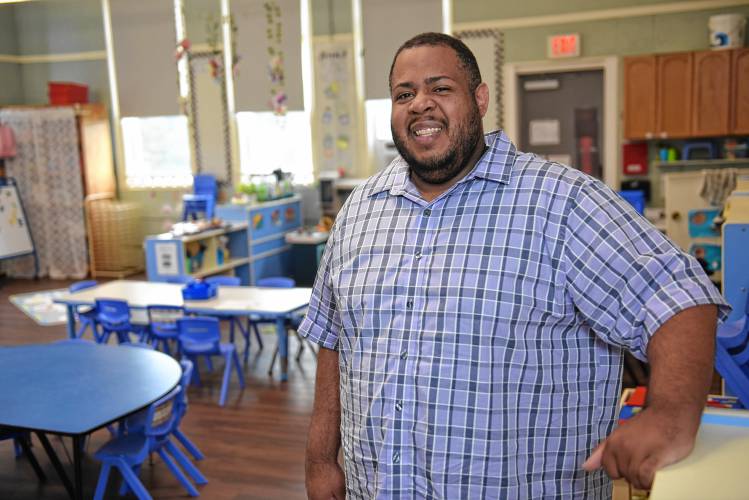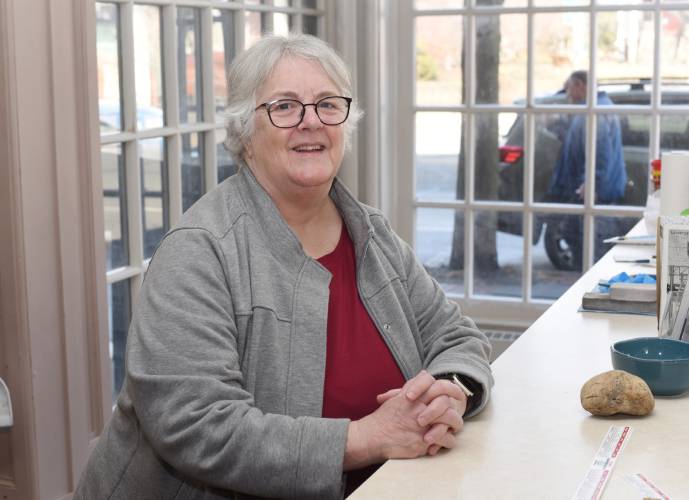Local child and family care providers to see a 14-34% reimbursement boost
|
Published: 01-17-2024 4:56 PM
Modified: 01-17-2024 5:21 PM |
Local child and family care providers are hailing the Healey-Driscoll administration’s recent boost of reimbursement rates for child care services as a “welcome change.”
Last week the Board of Early Education and Care approved Gov. Maura Healey’s proposed changes to the state’s reimbursement formula for early education and care providers, which uses the cost of providing care as a funding metric, rather than a market rate.
Under the approved changes, agencies and organizations that accept state child care financial assistance will receive at least a 5.5% increase to their daily per child reimbursement rate beginning in February — an average increase of more than $2,000 annually per child. In western Massachusetts, center-based child care settings are seeing a 34% increase for infant care rates and a 14% increase for toddler care.
“Child care is expensive and one of the things we’ve realized over the last couple of years is if we don’t increase the rates, then child care as a whole, the structure would collapse,” said Steven Rickman, executive director of The Learning Knoll. “It’s leveling the playing field across the state.”
The state is broken down into five regions and western Massachusetts, as well as the southeastern portion of the state, have historically received much lower reimbursement rates than the urban centers. The current rate for western Massachusetts is $72.37 for infant care, while the “Metro” region is set at $110.24.
At its two locations in Greenfield and Shelburne Falls, The Learning Knoll cares for about 90 children across its spectrum of programs. At the regional level, Community Action Pioneer Valley cares for up to 300 children when its programs are fully enrolled and Executive Director Clare Higgins said these rate increases will make a difference.
“It’s not based on the market, it’s based on the real cost of offering service and that is what the transformative part is there,” Higgins said, referencing 2021 remarks made by Secretary of the Treasury Janet Yellen about the state of the child care industry.
“Child care is a textbook example of a broken market, and one reason is that when you pay for it, the price does not account for all the positive things it confers on our society,” Yellen said in 2021.
Article continues after...
Yesterday's Most Read Articles
 Retired police officer, veteran opens firearms training academy in Millers Falls
Retired police officer, veteran opens firearms training academy in Millers Falls
 Valley lawmakers seek shorter license for FirstLight hydropower projects
Valley lawmakers seek shorter license for FirstLight hydropower projects
 More than 130 arrested at pro-Palestinian protest at UMass
More than 130 arrested at pro-Palestinian protest at UMass
 Baseball: Caleb Thomas pitches Greenfield to first win over Frontier since 2019 (PHOTOS)
Baseball: Caleb Thomas pitches Greenfield to first win over Frontier since 2019 (PHOTOS)
 Real Estate Transactions: May 10, 2024
Real Estate Transactions: May 10, 2024
 As I See It: Between Israel and Palestine: Which side should we be on, and why?
As I See It: Between Israel and Palestine: Which side should we be on, and why?
With boosted reimbursement rates, the state is aiming to close a financial gap as it recognizes the true cost of caring for a child. Federal law requires states to use a market rate survey or an alternative methodology to set rates and Massachusetts is one of the first six states in the U.S. that have been federally approved to use an alternate methodology when setting child care assistance rates.
“I thank the Board of Early Education and Care for their support in approving our transformational rate proposal, setting Massachusetts up to be a national leader in using the cost of care to more accurately and equitably determine reimbursements for our child care providers,” Healey said in a statement. “These deserved increases will help providers to recruit and retain a high-quality workforce and reduce costs for families.”
Higgins echoed that sentiment, noting that maintaining an effective staff is key to helping children develop in their earliest years.
“All of this will go into paying salaries that are more competitive … and maybe bring some people back to the field who had left,” Higgins said. “Most brain development for children happens in the early years, and so whatever we can do to bring passionate, dedicated teachers that are highly-qualified into our classrooms, the bigger difference we’ll make for kids.”
Both Rickman and Higgins said child care providers have been pushing for some sort of change to the reimbursement formulas and this will make things “more equitable” for agencies and organizations, especially those located in poorer regions.
“Child care is a vital resource in this community and we are going to continue to do the work, so we can make sure our future generations are stable,” Rickman said. “I want to thank our legislators for helping in this transformative change.”
Chris Larabee can be reached at clarabee@recorder.com.



 UMass graduation speaker Colson Whitehead pulls out over quashed campus protest
UMass graduation speaker Colson Whitehead pulls out over quashed campus protest UMass student group declares no confidence in chancellor
UMass student group declares no confidence in chancellor Four Rivers Climate Club organizes litter cleanup, panel on environmental activism
Four Rivers Climate Club organizes litter cleanup, panel on environmental activism
